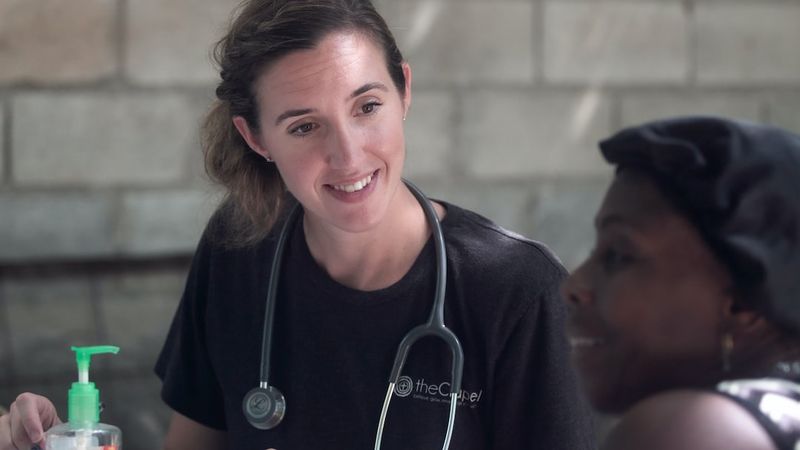<div><h2>Togolese Authorities Urgently Need to Strengthen Access to Maternal Healthcare</h2>
<h3>Introduction</h3>
In commemoration of African Women‘s Day, Amnesty International has called upon the Togolese authorities to take immediate action to enhance access to maternal healthcare in the country and address the concerning infant and neonatal mortality rates. According to UNICEF, Togo has an infant mortality rate of 43 deaths per 1000 live births and a neonatal mortality rate of 24 deaths per 1000 live births. Additionally, the maternal mortality rate stands at 399 deaths per 100,000 live births. While the Togolese authorities have attempted to make maternal healthcare more affordable, significant measures must be implemented to ensure that pregnant women receive dignified care in well–equipped facilities.
<h3>Challenges in Maternal Healthcare Facilities</h3>
Amnesty International delegates conducted comprehensive interviews with 21 individuals, including patients, midwives, and doctors, in various public healthcare facilities in Lomé and Aného between February and March 2023. The findings highlighted significant challenges in these facilities, including staff shortages, inadequate equipment, and poor quality of care.
One of the major issues identified was the shortage of midwives and gynecologists in public hospitals. The United Nations Population Fund reports that Togo has only two midwives per 10,000 people. A lack of regular examinations for entry into the public service hampers the recruitment of midwifery school graduates. Similarly, the scarcity of gynecologists in public hospitals exacerbates the burden on those currently practicing, leading to exhaustion and limited availability of specialized care.
The deficiencies in medical equipment further contribute to the healthcare crisis. The visited maternity units lacked essential equipment needed for patient care. For instance, Amnesty International found dilapidated examination tables, a shortage of scialytic lamps (forcing midwives to use mobile phone torches during consultations), and malfunctioning or insufficient resuscitation balloons, mucus aspirators, and episiotomy scissors. This lack of basic equipment compromises the safety and quality of care provided to expectant mothers.
<h3>Impact on Patients and Staff Relations</h3>
These challenges in maternal healthcare facilities have a significant impact on the well–being of both patients and healthcare staff. The shortage of equipment and staff contributes to strained patient–staff relations and compromises the quality of care during prenatal consultations and childbirth.
Patients have reported overcrowding and inadequate space in pediatric units, forcing them to purchase additional chairs for their children. Furthermore, patients recounted incidents of verbal abuse and humiliation by healthcare staff. The increased workload and stressful working conditions can spill over onto patients, leading to errors in care.
Conversely, midwives also face violence from patients and their relatives, both verbally and occasionally physically. These instances of aggression highlight the need for improved working conditions and increased support for healthcare staff in maternal healthcare facilities.
<h3>Improving Access to Affordable Healthcare</h3>
To address these challenges, the Togolese authorities launched a national support program for pregnant women and newborn children known as “Wezou“ (meaning “life“) in August 2021. The program aims to reduce maternal and neonatal mortality rates through affordable access to maternal healthcare services.
While the initiative is commendable, Amnesty International found discrepancies between the program‘s promised benefits and the actual services provided. Prior to its launch, official websites advertised “free care for pregnant women,“ but in practice, only specific services are provided for free and limited to women over 18 years old. Additionally, essential postpartum antibiotics are not included in the Wezou plan.
<h3>Recommendations for Improvement</h3>
Amnesty International calls upon the Togolese authorities to prioritize the right to health by ensuring an adequate number of qualified medical staff in maternal healthcare facilities. This requires addressing the shortage of midwives and gynecologists through regular examinations for public service entry and providing incentives for professionals to work in the public sector.
Furthermore, the government should guarantee that healthcare affordability programs are accessible to all individuals without discrimination. Allocating at least 15% of the state budget to the health sector, in line with the commitments made in the Abuja Declaration of 2001, is crucial for effectively addressing healthcare disparities and improving overall healthcare infrastructure.
The Togolese authorities must demonstrate a substantial commitment to improving access to healthcare and enhancing the quality of equipment and care in maternal health facilities. Investing in these areas is essential for reducing infant and neonatal mortality rates, advancing women‘s health, and fulfilling the country‘s obligations outlined in international human rights agreements.
As Togo marks African Women‘s Day, the urgent and comprehensive reform of the healthcare system is imperative to ensure that all women can give birth with dignity and in a safe environment. It is a moral and ethical duty to protect and preserve the lives of mothers and newborns.</div><div>Healthcare–wordpress,healthcarecrisis,Togo,women’shealth,childbirth,maternalhealth,healthcaresystem,healthcareinfrastructure,healthcareaccess,healthcareservices,healthcaredisparities,healthcarechallenges,healthcaresolutions,healthcarereform,healthcarepolicies,healthcareresources,healthcarefacilities,</div> 
<< photo by TopSphere Media >>
The image is for illustrative purposes only and does not depict the actual situation.
You might want to read !
- Russia’s Suppression of Dissent: TV Rain Banned for Critical Reporting
- The Untold Stories: Voices of Resilience and Healing in West Darfur
- The Disturbing Execution of Two Men in Bangladesh: A Grim Reflection of Human Rights Violations
- West & Central Africa: Combating Corruption and Protecting Whistleblower Rights
- USA: The Aftermath of Overturning Roe vs. Wade: A Deepening Human Rights Crisis
- The Vital Significance of the Inter-American Commission of Human Rights in Safeguarding Women’s Rights
- Extreme Heat: A Silent Threat to Maternal Health and Reproductive Rights
- Forcible Eviction, Displacement, and Segregation: The Ongoing Struggle for Palestinians in Israel/OPT